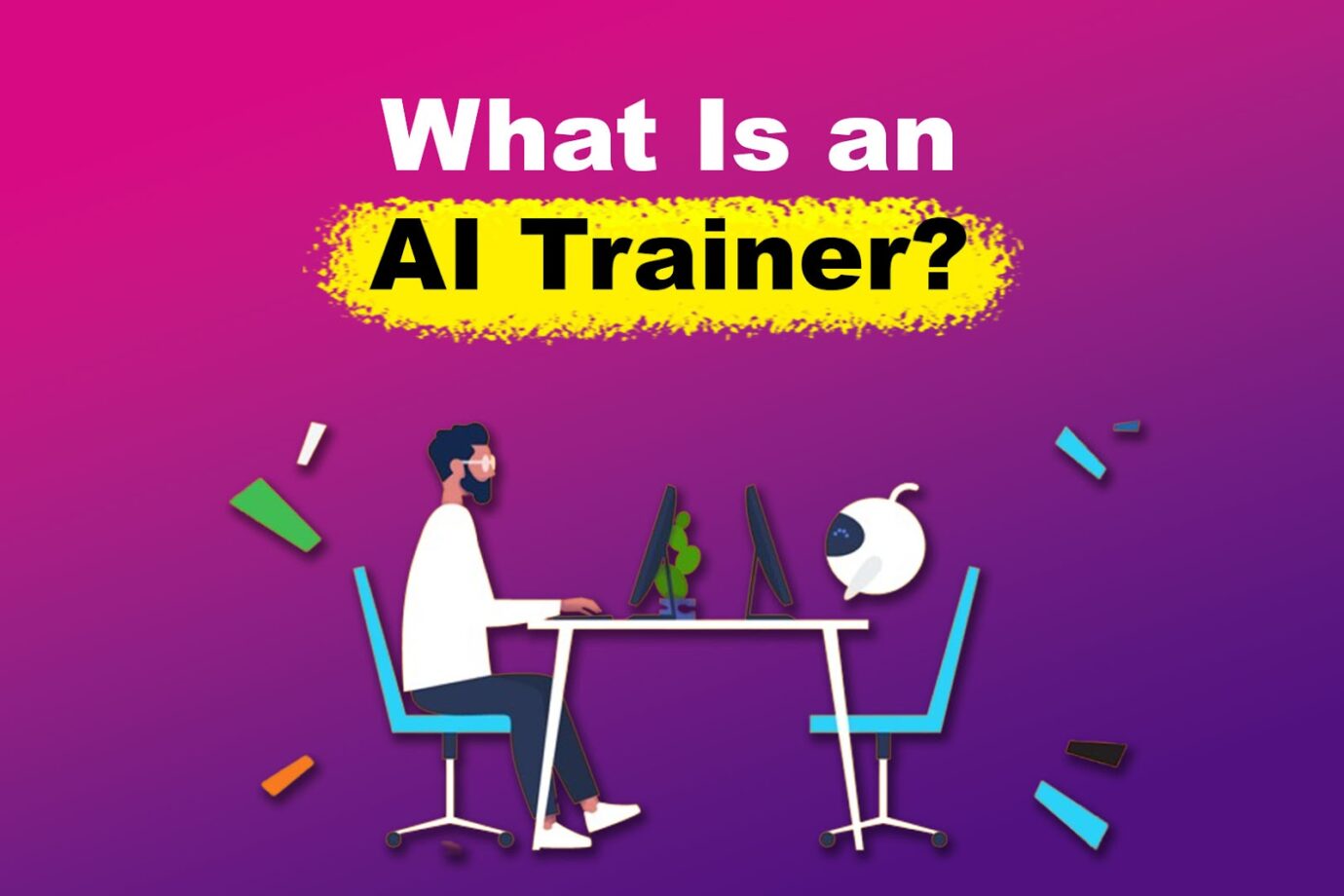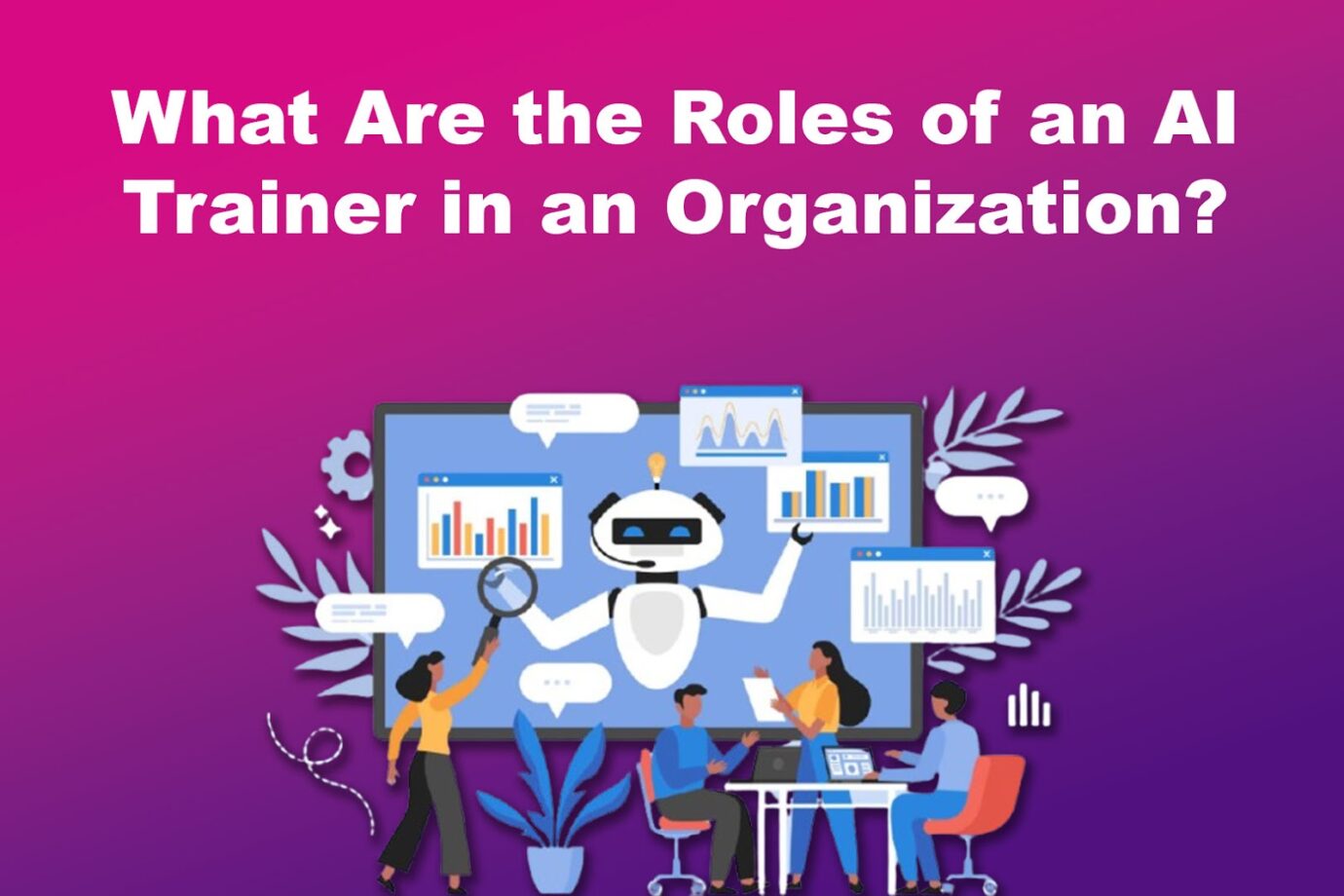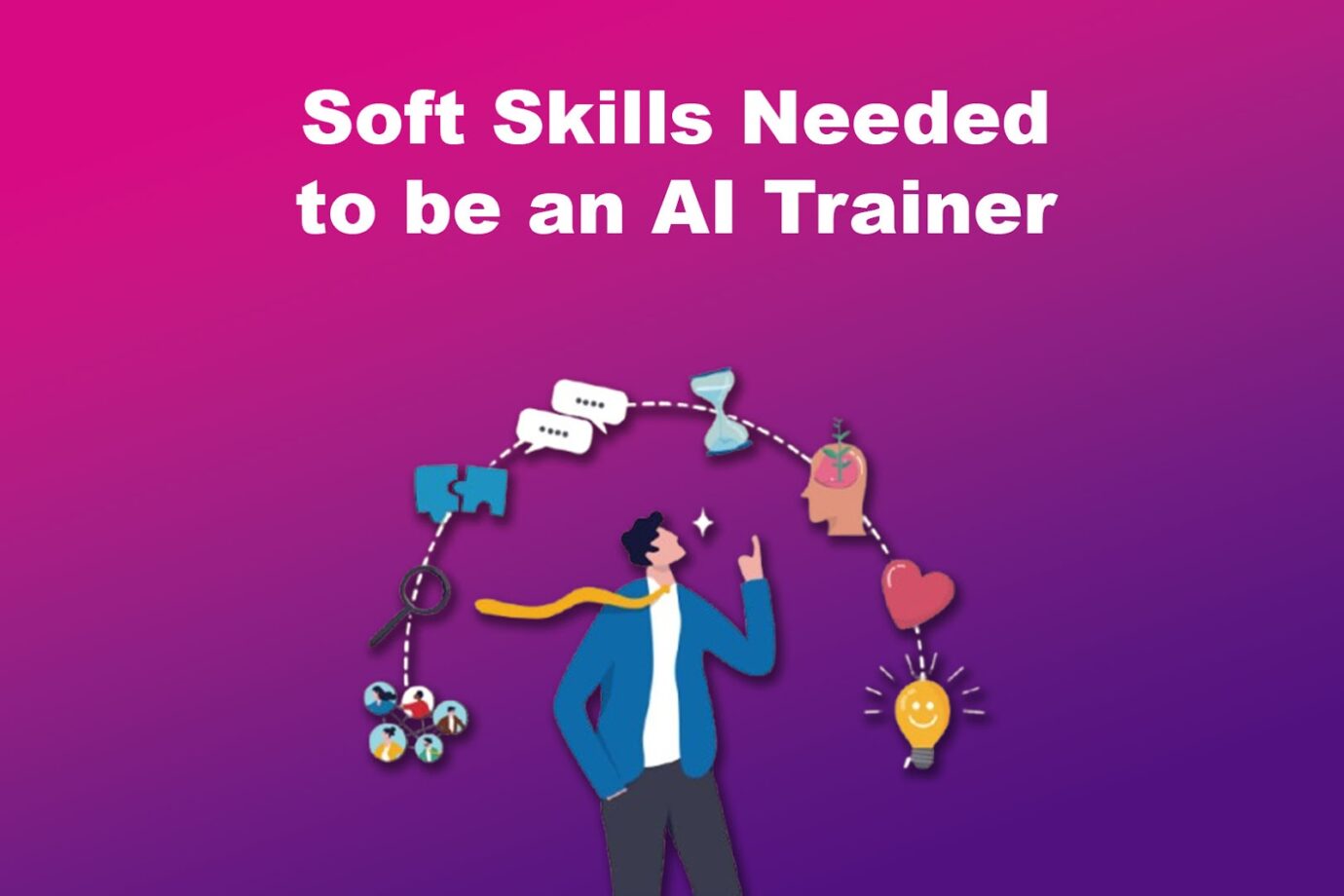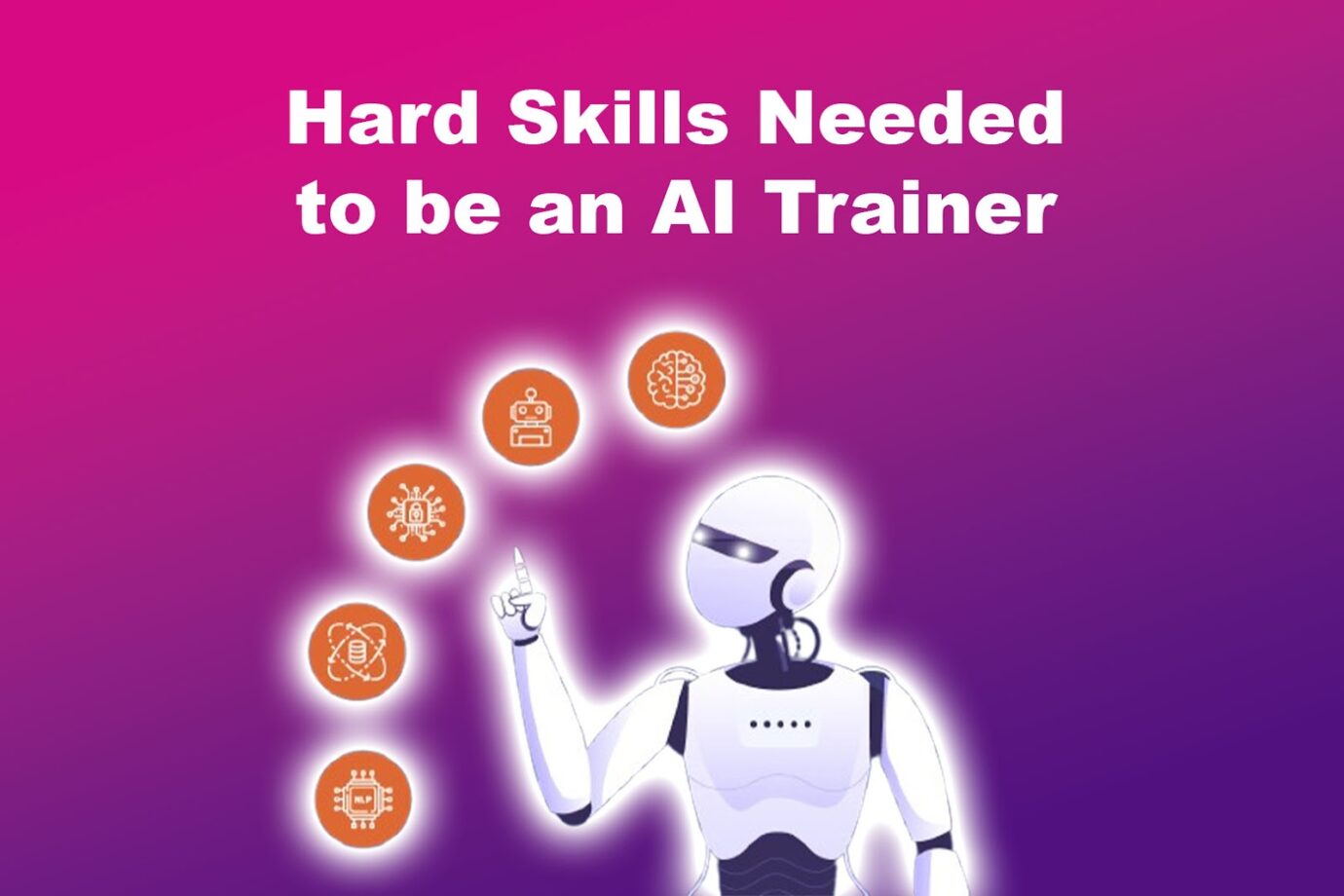Companies increasingly rely on artificial intelligence to ease their day-to-day operation. For instance, an ecommerce business may use AI to digitize order processing, making it faster and less prone to mistakes.
However, artificial intelligence can only work error-free when fed with the correct data. But who does that? The quick answer is an AI trainer.
If you’re unfamiliar with AI, you may ask what an AI trainer is. This article will answer your question and tell you everything you should know to become one.

What Is an AI Trainer?
An AI trainer is a professional who “teaches” artificial intelligence to carry out tasks. They curate the data fed into the AI system and ensure it is factual, accurate, and unbiased. AI trainers shape AI systems into something that provides value to companies and their customers.
As an AI specialist, you should understand the possible customer intents of the company you work for. This way, you can refine an AI system to provide valuable solutions to every customer query, resulting in a positive customer experience.
Think of how a chatbot works. They can converse with customers and provide them with what they need while sounding friendly, like an actual human. This is possible thanks to the data tailored by an AI training specialist.
Find out more about what an AI specialist is on Upwork.
What Are the Roles of an AI Trainer in an Organization?
AI training is a data-heavy task, so the role of a trainer revolves heavily around handling datasets and improving their quality.

These are the roles of an AI model trainer:
- Data Curation & Processing.
A data trainer selects the dataset the AI system will use for learning. The data should be clean and accurate to ensure the system works without error. - Collaboration.
An AI system should align with a brand’s voice and goal. To achieve this, the AI specialist must communicate and collaborate with various teams who can provide them with a better understanding of what the AI system is for. - Data Annotation.
AI training involves categorizing and labeling raw data to help AI models draw meaningful contexts.
Discover more about data annotation in this article by PortfoLink. - Model Assessment.
Training an AI model involves continuous improvement. A data trainer must evaluate the system and its performance to determine what needs improvement. - Feedback Loop Evaluation.
This is assessing an AI model’s responses and re-training it for quality improvement.
HubSpot has a more in-depth explanation of what a feedback loop is. - Algorithm Adjustment.
An AI system should cater to the specific needs of the company it is designed for. To this end, the AI specialist should fine-tune the system’s algorithm to match its performance to the business’s objectives.
What Are the Skills Needed to be an AI Specialist
AI training requires both soft and hard skills. This job revolves around technology, requiring you to analyze and interpret data critically. The combination of soft and hard skills allows you to train an AI model to handle real-world scenarios in a way that meets industry standards:
These are the soft and hard skills needed in AI training:
Soft Skills Needed to be an AI Trainer

- Attention to Detail.
Feeding AI with incorrect data can ruin its entire function. For this reason, an AI specialist must be attentive to details to avoid inaccuracy. - Communication Skills.
Artificial intelligence can be challenging for non-technical individuals to understand. This is why AI instructors should be able to communicate its details more straightforwardly. - Adaptability.
AI is undeniably evolving. AI specialists should keep up with these changes and use the latest technology for their AI models. - Principled.
AI systems should always abide by ethical standards to prevent them from delivering unfair judgments. - Problem-Solving Skills.
While creating an AI system, you may encounter unforeseen issues. You must have problem-solving skills to resolve them efficiently and methodically.
Hard Skills Needed to be an AI Trainer

- Programming.
Apart from data preparation, a machine learning trainer’s job revolves around programming. For this reason, you must have extensive knowledge of programming languages to develop a machine-learning model. - Data Analysis & Annotation.
As an AI specialist, you must be able to understand and process technical information. This allows you to spot and eliminate faulty data and annotate the correct ones. - Natural Language Processing (NLP).
If you’ve ever conversed with a chatbot, you must have observed how human-like their answers are. Having NLP skills lets you polish AI systems, making their interactions with humans natural.
In this article, Harvard Business Review has explained natural language processing and what it can do to AI models. - Quality Assurance.
This skill is crucial in creating a consistent AI system that responds to queries without error. - Machine Learning.
A deep understanding of machine learning is crucial for every AI specialist, as it helps them teach AI to learn from the data fed to them.
Get to know more about machine learning on Google Cloud.
How to Be an AI Trainer
Now that you know what AI training is, you’re probably searching for a guide to becoming one. While everyone can learn to be an AI model trainer, it’s worth noting that you have better chances of becoming one if you know data analytics and management.
These are the steps you should follow to become an AI trainer:
Step 1: Learn About Artificial Intelligence
AI Training requires a deep understanding of artificial intelligence and machine learning. You must understand the concepts of AI and know about their applications. You can take online courses, attend workshops, and read AI-related articles to gain such knowledge.
Coursera lists the best artificial intelligence courses you can take this year!
Step 2: Gain Experience
Gaining experience does not mean you have to apply as an AI training engineer right after learning about artificial intelligence. Instead, you can take less tedious jobs or internships related to AI.
Working in such jobs will allow you to develop a deep understanding of AI, making you a step closer to becoming an AI specialist.
Upwork has an extensive list of job openings related to artificial intelligence.
Step 3: Develop Your Skills
As you gain experience, ensure you also gain knowledge about the standard tools AI trainers use. This will help you not start from scratch once you finally get your dream AI training job.
You can study artificial intelligence tools independently. However, if you want a more comprehensive understanding, LinkedIn has explained the tools data scientists need.
Step 4: Grow Your Network
No one can better teach you about artificial intelligence than your fellow AI enthusiasts. So, make sure you are reaching out to people with the same interests as yours. You can do this by commenting on forums and attending conferences.
Not only does growing your network help you learn, but it also helps you get closer to potential jobs. For instance, if someone you talked to knows a client who needs an AI specialist, they can recommend you do the job.
Step 5: Apply to Jobs
Once you are confident about your knowledge and skills, you can dive into the online market to find your first job as an AI specialist. However, don’t expect to get a high-paying job while you’re still starting. Instead, accept entry-level positions until you can apply to more advanced ones.
LinkedIn has a list of AI training jobs that you can apply to.
It Takes Time to be an AI Data Trainer
After knowing what an AI trainer is and the tasks linked to it, you’re probably wondering if you can become one. Well, you definitely can, but it takes time.
Training AI systems involves analyzing datasets, ensuring their accuracy, and training and retraining them to perfection. This job requires a deep understanding of artificial intelligence and developing the skills needed to handle it.
So, look for online courses, build connections, and mingle with people who can help you become one!